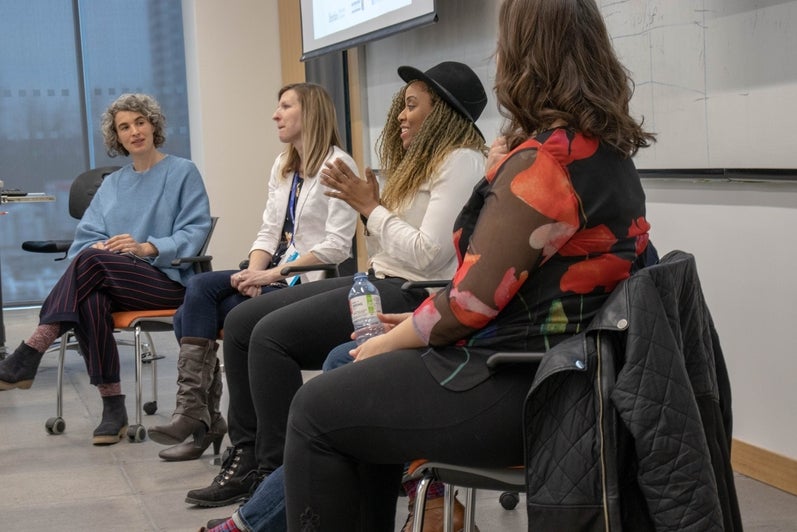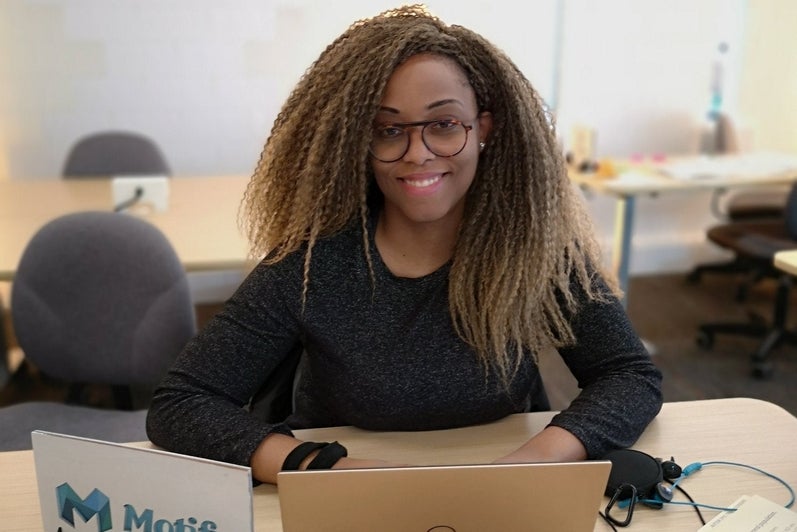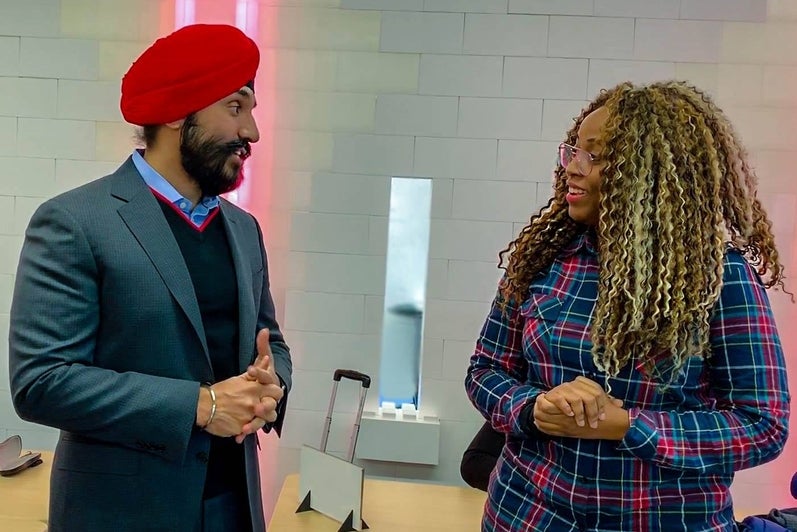In conversation with Shauna-Kay Jones: Black entrepreneur finding solutions for education
By: Krista Henry (she/her)
Celebrating Black History Month
There was never an "a-ha" moment for Shauna-Kay Jones (she/her) in her decision to become an entrepreneur.
Instead, Jones (BA ’12) saw a problem that needed solutions which led to the start of her tech company, Motify. Motify provides tools for students on the autism spectrum.
Jones is passionate when it comes to accessibility as well as developing women in science, technology, engineering and math (STEM).
She is working to help provide education to all, regardless of background.
Jones works for PointClickCare and previously with IESO, the City of Brampton, Sheridan College and the Peel District School Board.
She is a panelist on Co-operative and Experiential Education’s (CEE) upcoming "Elevating Black excellence in the workplace" panel discussion.

Shauna-Kay Jones
Founder of Motify
Tell us a bit about your career history and current role.
My career journey started right after I completed my degree at the University of Waterloo and completed my studies at Sheridan College. I started a company called Motify which was inspired by my brother, to help students with autism transition from high school to university. I also started working as a junior business systems analyst at PointClickCare.
After seeing how the COVID-19 pandemic affected small businesses, I decided to start MotifyApps. The company helps with technology consulting and building mobile apps and websites for small businesses. MotifyApps has grown four times in the last year and has now expanded its offerings to include technology services for medium-sized businesses. I now run the technical mergers and acquisitions team at PointClickCare as a senior business systems manager.
Throughout my journey, I have been included in publications such as Maclean’s magazine, Toronto Star, CTV News, MNP Future Leader Award, CAFCE Canada National Award and Brampton’s Top 40 under 40. I was also honoured to start programs such as a Black Girls Who Code Program and Women in Technology initiatives at Sheridan College.
What’s the best advice you ever received, career-wise or other?
Never stop learning. Always be on the lookout for opportunities to upgrade your skills or build new ones. Whether directly related to your job or just something fun you want to learn. Adding new certifications and skills not only makes you more marketable, it also opens your eyes to more ways to further your career, find a new one or add a side hustle.
Why is it important to celebrate Black History Month?
Black History is Canadian History. The journey of Black people in Canada is woven into the shaping and creation of Canada as a nation over many decades. Black Canadians have made tremendous contributions to the building and development of Canada. The celebration of Black History Month gives us an opportunity to remind people of the horrendous racial discrimination that created the systemic injustices we fight today.
It also gives an opportunity to showcase all the greatness and contributions Black people have made in all areas of Canadian society. Learning about Black history is crucial in ensuring future generations dismantle these systems of oppression and finally achieve true equality.
What figure in Black history do you look up to most and why?
I must give it to the pioneer, the legend, the greatest of all time - Oprah Winfrey. A self-made billionaire, business owner, philanthropist and the undisputed queen of daytime television. Oprah was born into poverty and faced many hardships. She used her smarts, grit and personality to go from a nine-to-five job in radio to become an international superstar at a time Black women were not offered such opportunities.
The reason Oprah is such an important figure to me is that she taught me that you can serve your way to greatness. Success can be achieved through impactful work. Through all her success, she has built schools and worked to provide opportunities for other Black girls to escape poverty and to achieve the impossible.
What is your understanding today of the experience(s) Black employees have at work? Based on what you know, what is and is not working?
I think this can be a very nuanced experience. As a Black woman in technology, I have heard about great experiences from colleagues working for diverse and inclusive companies. I have heard complete horror stories from others. What is not working is that Black employees are still extremely underrepresented in the highest-paying careers. Black startups are the least funded and most Fortune 500 companies are lacking Black leaders.
At the same time, some things that are working - Black women starting businesses are on the rise. Systemic discrimination in the office is a conversation at the forefront. Some companies are making intentional efforts to promote and higher more Black employees.
We still have a long way to go to truly reach equitable diversity.
I think the more we can offer networking opportunities to more Black students, provide more mentorship within the Black community and really pool together to support Black-owned businesses, the closer we can get.
Want to hear more from Shauna-Kay?
Register today for our FREE virtual panel discussion titled "Elevating Black excellence in the workplace."





